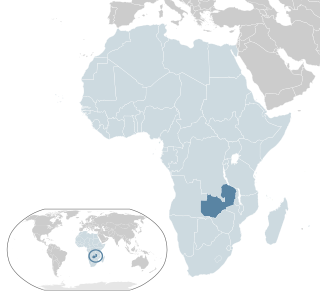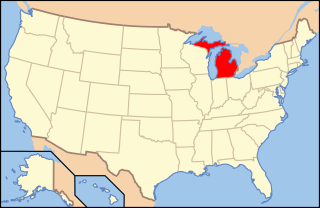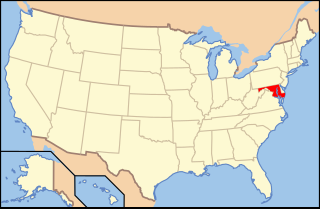
Human rights are moral principles or norms that describe certain standards of human behaviour and are regularly protected as natural and legal rights in municipal and international law. They are commonly understood as inalienable, fundamental rights "to which a person is inherently entitled simply because she or he is a human being" and which are "inherent in all human beings", regardless of their nation, location, language, religion, ethnic origin, or any other status. They are applicable everywhere and at every time in the sense of being universal, and they are egalitarian in the sense of being the same for everyone. They are regarded as requiring empathy and the rule of law and imposing an obligation on persons to respect the human rights of others, and it is generally considered that they should not be taken away except as a result of due process based on specific circumstances; for example, human rights may include freedom from unlawful imprisonment, torture, and execution.
International human rights law (IHRL) is the body of international law designed to promote human rights on social, regional, and domestic levels. As a form of international law, international human rights law are primarily made up of treaties, agreements between sovereign states intended to have binding legal effect between the parties that have agreed to them; and customary international law. Other international human rights instruments, while not legally binding, contribute to the implementation, understanding and development of international human rights law and have been recognized as a source of political obligation.

The Australian Human Rights Commission is a national human rights institution, established in 1986 as the Human Rights and Equal Opportunity Commission and renamed in 2008. It is a statutory body funded by, but operating independently of, the Australian Government. It is responsible for investigating alleged infringements of Australia's anti-discrimination legislation in relation to Commonwealth agencies. Matters that can be investigated by the Commission under the Australian Human Rights Commission Regulations 1989 include "discrimination on the grounds of race or nationality, colour or ethnic origin, racial vilification, age, sex or gender, sexual harassment, marital or relationship status, sexual orientation, gender identity, intersex status, care status, actual or potential pregnancy, breastfeeding, trade union activity, criminal record, medical record, impairment or physical disability".

The Canadian Human Rights Act is a statute passed by the Parliament of Canada in 1977 with the express goal of extending the law to ensure equal opportunity to individuals who may be victims of discriminatory practices based on a set of prohibited grounds such as sex, sexual orientation, race, marital status, gender identity or expression, creed, age, colour, disability, political or religious belief.
Washington House Bill 2661 is a Washington state law which bans employment, insurance and housing discrimination against LGBT individuals, passed by the Washington State Legislature on January 27, 2006, and signed into law by Governor Christine Gregoire four days later. The bill went into effect on June 8, 2006.
Human rights in Croatia are defined by the Constitution of Croatia, chapter three, sections 14 through 69.
Employment discrimination law in the United States derives from the common law, and is codified in numerous state and federal laws, particularly the Civil Rights Act of 1964, as well as in the ordinances of counties and municipalities. These laws prohibit discrimination based on certain characteristics or protected categories. The United States Constitution also prohibits discrimination by federal and state governments against their public employees. Discrimination in the private sector is not directly constrained by the Constitution, but has become subject to a growing body of federal and state law. Federal law prohibits discrimination in a number of areas, including recruiting, hiring, job evaluations, promotion policies, training, compensation and disciplinary action. State laws often extend protection to additional categories or employers.
The Woodhull Freedom Foundation, also known as the Woodhull Sexual Freedom Alliance, is an American non-profit organization founded in 2003 that advocates for sexual freedom as a fundamental human right. The organization is based in Washington, D.C., United States. Named after an influential member of the American woman's suffrage movement, Victoria Woodhull, its focus includes analyzing groups and individuals that seek to perpetuate a culture of sexual repression.

Lesbian, gay, bisexual, and transgender persons in Zambia face legal challenges not faced by non-LGBT citizens. Same-sex sexual activity is illegal for both males and females in Zambia.

Discussions of LGBT rights at the United Nations have included resolutions and joint statements in the United Nations General Assembly and the United Nations Human Rights Council (UNHRC), attention to the expert-led human rights mechanisms, as well as by the UN Agencies.

Lesbian, gay, bisexual, and transgender (LGBT) persons in the U.S. state of Michigan may face legal challenges not faced by non-LGBT residents. Same-sex sexual activity is legal in Michigan, as is same-sex marriage. Discrimination on the basis of sexual orientation and gender identity is not explicitly banned within state law. However, a ruling of the Sixth Circuit Court of Appeals and a decision of the Michigan Civil Rights Commission have ensured that members of the LGBT community are not discriminated against and are protected in the eyes of the law.

LGBT residents in the U.S. state of Georgia face legal and social challenges not faced by non-LGBT individuals. Same-sex sexual activity has been legal since 1998, and same-sex marriage has been legal since 2015.

The expansion of lesbian, gay, bisexual, and transgender (LGBT) rights in the U.S. state of Maryland is a recent phenomenon, with most advances in LGBT rights occurring within the past two decades. Maryland has had statewide protections against discrimination based on an individual's sexual orientation since 2001 and gender identity since 2014. Legislation to legalize same-sex marriage in Maryland was approved by voters on November 6, 2012 and went into effect on January 1, 2013. Today, the state of Maryland is regarded as one of the most pro-LGBT states in the country, with two-thirds of Marylanders supporting same-sex marriage. In May 2018, a ban on conversion therapy on minors was signed into law by the Governor, and it became effective on October 1, 2018.

Fiji is an island nation in Melanesia in the South Pacific Ocean with a population of approximately 849,000. It is made up of Fijians, Indo-Fijians, Europeans, Chinese, other Pacific islanders, and people of mixed racial descent. Fiji has been in a state of political unrest since their independence from Britain in 1970.
The right to sexuality incorporates the right to express one's sexuality and to be free from discrimination on the grounds of sexual orientation. In specific, it relates to the human rights of people of diverse sexual orientations, including lesbian, gay, bisexual and transgender (LGBT) people, and the protection of those rights, although it is equally applicable to heterosexuality. The right to sexuality and freedom from discrimination on the grounds of sexual orientation is based on the universality of human rights and the inalienable nature of rights belonging to every person by virtue of being human.
The regulation of LGBT employment discrimination in the United States varies by jurisdiction. Many states and localities prohibit bias in hiring, promotion, job assignment, termination, and compensation, as well as harassment on the basis of one's sexual orientation. Fewer extend those protections to cover sexual identity. Some cover government employees, but do not extend their protections to the private sector. Protections at the national level are limited. There is no federal statute explicitly addressing employment discrimination based on sexual orientation or gender identity. However, the Equal Employment Opportunity Commission (EEOC) interprets Title VII of the Civil Rights Act of 1964 to cover discrimination against LGBT employees, as "allegations of discrimination on the basis of sexual orientation necessarily state a claim of discrimination on the basis of sex". This interpretation in essence bars employment discrimination on the basis of sexual orientation in accordance with the Civil Rights Act of 1964. In 2012 the Equal Employment Opportunity Commission ruled that Title VII of the Civil Rights Act of 1964 does not allow gender identity-based employment discrimination because it is a form of sex discrimination. Then in 2015, the Equal Employment Opportunity Commission concluded that Title VII of the Civil Rights Act of 1964 does not allow sexual orientation discrimination in employment because it is a form of sex discrimination. However, these rulings, while persuasive, may not be binding in courts.
Mary Eastwood (1930–2015) was an American lawyer.
Masterpiece Cakeshop v. Colorado Civil Rights Commission, 584 U.S. ___ (2018), was a case in the Supreme Court of the United States that dealt with whether owners of public accommodations can refuse certain services based on the First Amendment claims of free speech and free exercise of religion, and therefore be granted an exemption from laws ensuring non-discrimination in public accommodations — in particular, by refusing to provide creative services, such as making a custom wedding cake for the marriage of a gay couple, on the basis of the owner's religious beliefs.

The Human Rights Commission noted in its 2004 report on the status of human rights in New Zealand that transgender, and non-binary people in New Zealand face discrimination in several aspects of their lives, however the law is unclear on the legal status of discrimination based on gender identity, and also for intersex people.
The Minnesota Department of Human Rights is a state-level governmental body in Minnesota tasked with investigating abuses of its human rights laws and educating the public about them.











